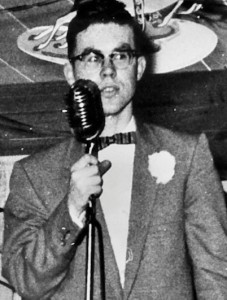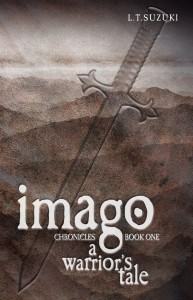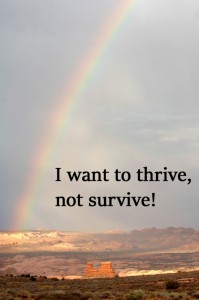 Many a memoir covers topics and events of tragedy and trauma; they are about real life, after all, and almost anybody who has ever engaged in a relationship with another two-legged creature is going to have some T&T filed away on their hard drive. (Hopefully they don’t need anything bigger than 500 gigabytes.) Some of the most hideously-traumatic experiences lead to the most uplifting stories, told by a protagonist who models resilience and compassion. But here’s the component that some people might find gauche: Tragedy + time = humor.
Many a memoir covers topics and events of tragedy and trauma; they are about real life, after all, and almost anybody who has ever engaged in a relationship with another two-legged creature is going to have some T&T filed away on their hard drive. (Hopefully they don’t need anything bigger than 500 gigabytes.) Some of the most hideously-traumatic experiences lead to the most uplifting stories, told by a protagonist who models resilience and compassion. But here’s the component that some people might find gauche: Tragedy + time = humor.
I was chatting with a writing acquaintance over tea recently when this concept came up. Her family’s story includes a serious mental illness and a gruesome murder, and when she pitched her memoir manuscript to agents, she was told over and over again that it was too dark and heavy. “Oh, yeah, no,” I said. (I really like to say “yeah, no.”) “Yeah, no, you’ve got to put some funny stuff in there.” She looked at me like I’d just farted in front of the Queen. “I need humor,” she responded. “In a story where someone is decapitated.” “Oh, yeah, yeah,” I said. (I do a lot of double-yeahs, too.) “I mean, not in the actual decapitation scene. That would be disrespectful. But in other places, with characters who can be used as a patsy of sorts. Or you find it in the ridiculous. Or from irony. Irony is a great source of humor.”

By now, this woman was sizing me up for a hand-tailored sociopath suit. Unconvinced by my advice, she asked the third person at the table, who, luckily, agreed wholeheartedly with me. You see, as the author and protagonist, it’s likely that one of the reasons you survived trauma and tragedy in the first place was because of humor. You had to have laughed at some point, and most likely when you did, you remember it, because the feeling was such a marked departure from your distress, and it helped you to either start healing or stay afloat. And if you can’t find the humor amid your tragedy and trauma, then it may not yet be the appropriate time to write the story.
Put the shoe on the other foot for a moment, or even on a hand, if you can’t bear to pull off your second shoe in order to make way for the first one to go on. As readers, we don’t want to ingest a true-life account that is going to leave us devastated and needing time off from work. We expect that you, the writer, will have already done all the therapy, distilled the bittersweet lessons from your life experience, and told us about it in a way that makes us go, “Crap, that was rough, but I so admire the way the author has been able to rise above it. It gives me hope for myself and others.” And we don’t mind a good cry, but only if there’s an even better laugh when we flip the page.

If you write memoir, think about this: Who are some larger-than-life or perfect-caricature characters in your life story, the ones whose personalities you can play up to add some levity and balance? Even minor characters can add tremendously in this area. In my memoir manuscript, I use my dad’s off-the-scale dork factor to offset the painful scenes with my mother. On the other hand, some scenes in my book were excruciating and humiliating at the time that they occurred, but without changing a thing, they’re now funny. So, let’s build on that earlier equation: Tragedy + time = humor, where “time” is equal to “x,” and “x” is different for each and every writer out there. When you can think back on your life—all of it, at any given point—and smile, you’ll know you’ve found your “x.”
What do you guys think? Writers and readers, I love to hear from you, so please leave a comment!
p.s. I do make the occasional exception with regard to stories that leave readers devastated. Sometimes we need to have a tragedy permanently burned into our brains in order to prevent it from ever happening again, e.g., the Holocaust.
p.p.s. A wee memoir update from me: After three years of work, I think that I’m finally mere weeks away from finishing the last edits before I submit to agents. My critique partners Andrea and Tracy, to whom I am forever indebted, are currently working through the book’s last chapters, during which time I’m putting together the book proposal and marketing plan. After that, one last whirl through my (second) group of beta readers, and I pray I can call it good, literally and figuratively. And if that’s not the case, well, you’ll find me weeping at my keyboard, then working on the manuscript some more, because hard work + time = memoir, where “time” equals “who flippin’ knows.”



















